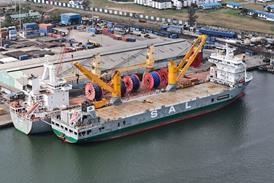As the Northern Sea Route (NSR) becomes an increasingly attractive shipping lane, the International Union of Marine Insurance (IUMI) says more support is required to facilitate the provision of adequate insurance for Arctic sailings.
.jpg)
The change in ice conditions is opening the high Arctic to commercial development but, in a position paper, IUMI states a number of considerations to be taken into account when assessing individual voyage risk.
These include regional rescue and salvage facilities, potential places of refuge, expected weather conditions, experience of crew and the operational performance of the vessel itself.
Helle Hammer, IUMI's chair of its policy forum and co-author of the position paper, said: “The marine insurance sector, like all sectors, wants to see enhanced safety for ships operating in Arctic waters.
“We would strongly encourage an improved infrastructure to provide the required level of search and rescue capacity alongside suitable places of refuge. We would also like to see updated surveys and more reliable charting of the region. This would assist marine underwriters to quantify the risks involved.”
Historical information – due to the current limited number of sailings and constantly changing ice conditions – is not available and this is forcing marine insurers to take a more cautious approach to risk assessment.
“When assessing risk for insurance purposes, historical loss data is a key factor, and that's missing for polar operations,” adds Hammer.
“This means that underwriters must assess each voyage on a case-by-case basis. Alongside the availability of suitable infrastructure, IUMI is encouraging insurers to consider the vessel's Polar Ship Certificate and take into account the vessel operator's level of preparedness and planning.”
Mariners have long sought navigation through Arctic waters. Later this year Maersk Line will carry out a one-off trial passage of the NSR to explore the operational feasibility of container shipping along the route.
As HLPFI reported here, one of Maersk Line’s new ice-class 3,600 teu container vessels will travel from east to west, passing the Bering Strait. The specific route will be agreed with Russian authorities after careful evaluation of ice conditions. Icebreaker assistance will be provided as required, said Maersk.
The position paper is available from IUMI's website.
iumi.com
















